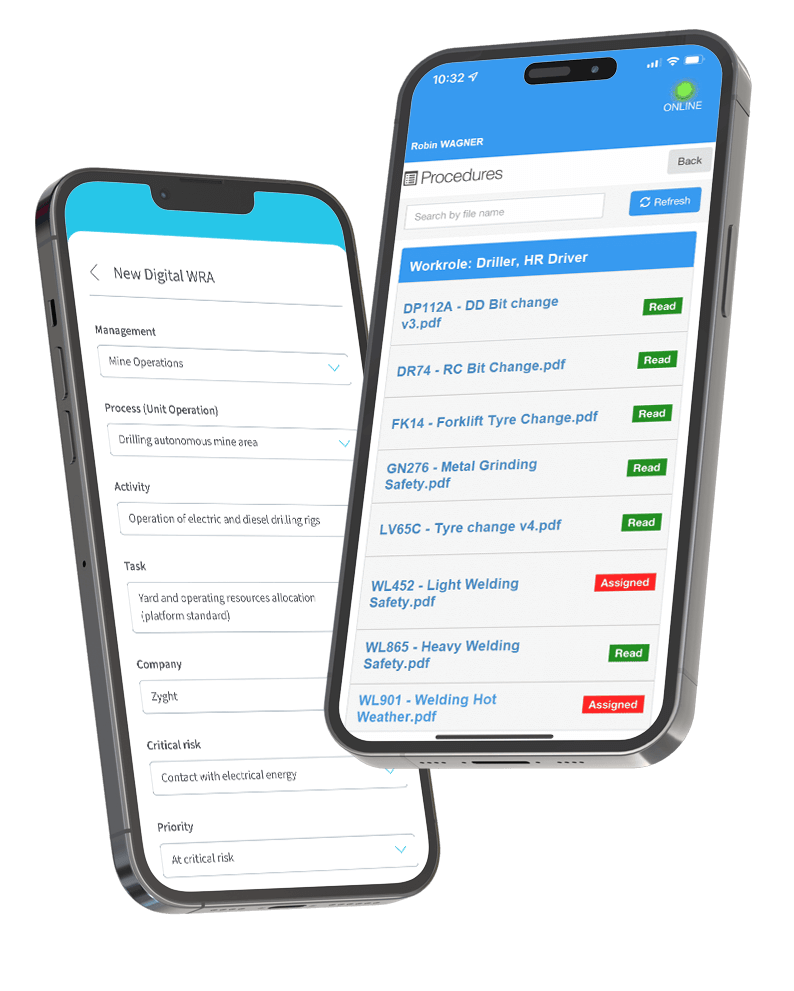The Shift to Proactive Safety
In workplace safety, the shift from reactive to proactive incident management has become essential.
Reactive measures address incidents after they occur, often leading to repeated patterns of risk. Proactive incident management focuses on preventing incidents by using data to identify non-compliance, deviations, or repetitive behaviors that increase risk.
While no system can predict incidents, tools like ZYGHT help organizations uncover the root causes of safety challenges before they escalate.
Proactive incident management is the practice of anticipating and addressing potential risks before they result in incidents. It involves:
- Monitoring key data points to identify trends and deviations.
- Understanding patterns of non-compliance that may lead to accidents.
- Empowering teams to take corrective action based on insights.
This approach reduces workplace risks, minimizes downtime, and enhances employee well-being.
Data-driven insights are the foundation of proactive incident management. Advanced reporting tools like those in ZYGHT analyze workplace behaviors and compliance records, allowing businesses to:
- Detect deviations early: Spot patterns or behaviors that deviate from safety protocols.
- Identify recurring issues: Track repeated non-compliance or at-risk behavior across teams.
- Focus on prevention: Use data to guide decisions that prevent accidents, rather than reacting to them.
For example, ZYGHT’s analytics tools enable companies to drill down into specific trends, revealing opportunities for targeted interventions.
Creating a proactive safety culture goes beyond tools and data. It requires a commitment to safety at all levels of an organization. Key steps include:
- Leadership Buy-In: Leaders must champion safety as a priority.
- Employee Engagement: Train staff to recognize risks and act responsibly.
- Continuous Monitoring: Regularly assess compliance and address gaps.
- Using Technology: Leverage tools like ZYGHT for real-time insights and reporting.
A strong culture of accountability ensures proactive measures are consistently applied, reducing the likelihood of incidents.
ZYGHT’s incident management tools are designed to help organizations move from reactive to proactive safety management. With ZYGHT, businesses can:
- Track and analyze incidents to uncover patterns and root causes.
- Generate automated reports for better decision-making.
- Identify trends in non-compliance or repetitive behaviors that signal potential risks.
While ZYGHT doesn’t predict incidents, its comprehensive data insights empower organizations to act before issues arise. By addressing deviations early, companies can safeguard their workforce and improve overall safety performance.
Proactive incident management transforms how organizations approach safety. By focusing on data-driven insights and fostering a culture of prevention, businesses can significantly reduce risks. Tools like ZYGHT enable organizations to identify deviations, track recurring behaviors, and implement measures that keep teams safe.


